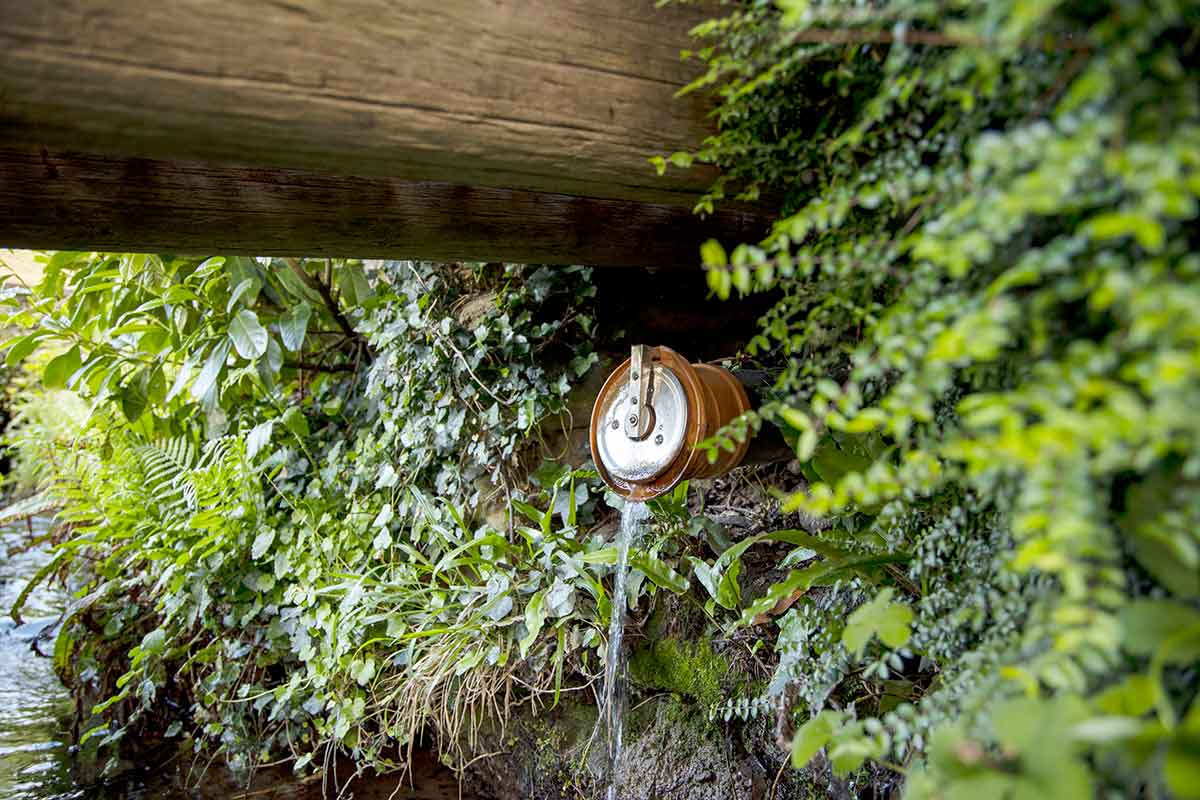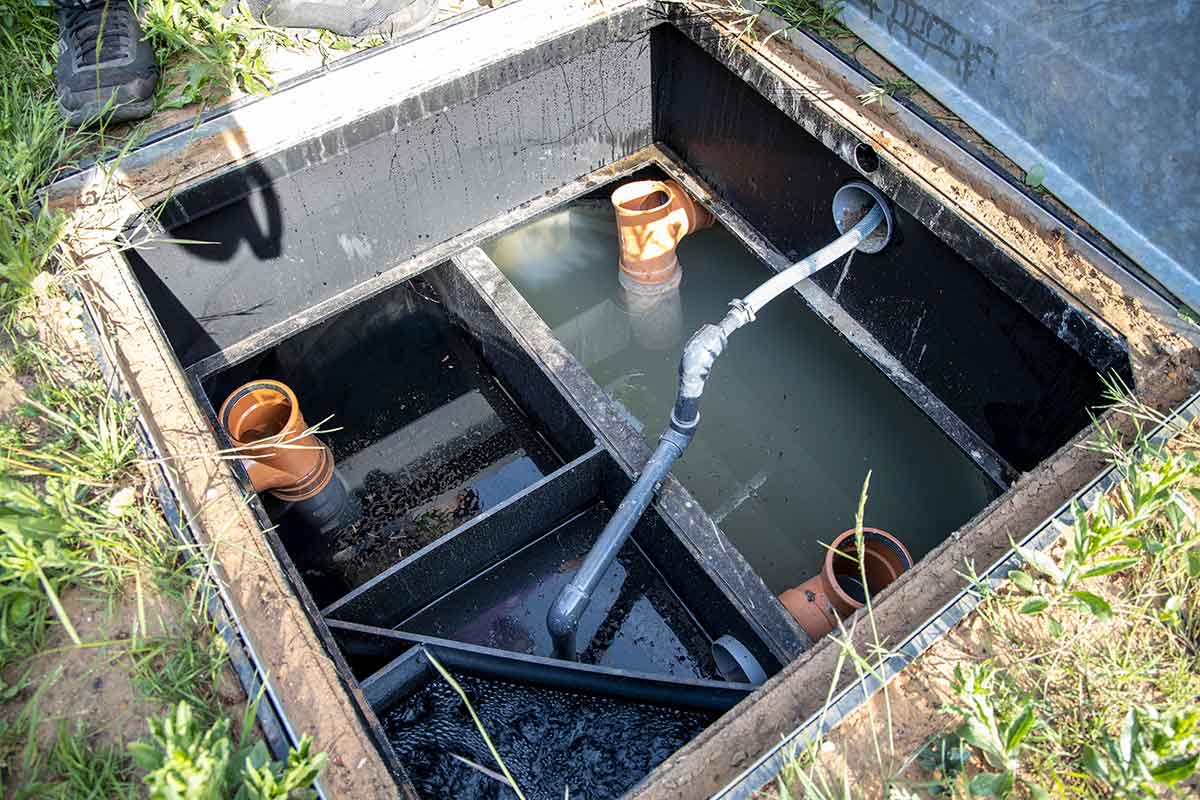In the UK, it is now illegal to operate a septic tank that discharges into a watercourse. This is a result of new environmental regulations which came into effect in January 2020 (read our summary here).
Since then, we’ve been asked many questions about what to do when selling a house with a septic tank. Fortunately, the government’s “General Binding Rules”, as they are known, offer a clear guide for both sellers and buyers.
In this article, we’ve summarised the two main steps you need to take when selling a house with a septic tank without falling foul of the new laws.
Step #1 – Check whether the septic tank discharges into a watercourse

Some septic tanks and cess pits do not discharge into a water table or watercourse. Instead, the sewage is collected by an off-mains drainage contractor, such as CESS. If this applies to you, neither yourself nor the potential buyer are obligated to replace the sewage system.
But if your septic tank does discharge into a watercourse, the system will need to be replaced. (The best solution is a modern sewage treatment plant, which filters out solid matter and treats the wastewater. The treated effluence is then dispersed into a watercourse – much better for the environment.)
So, who is responsible for replacing the septic tank – you, or the buyer? The General Binding Laws state that this is a matter to be agreed by both parties as a condition of sale. But before this conversation can be had, you must complete Step #2…
Step #2 – Provide clear information to the buyer
It is important to be as transparent as possible when selling a property with an off mains septic system. You will need to provide – in writing – clear information about the design, condition, and layout of your septic tank. You must also tell the buyer whether your system complies with the latest regulations.

The Gov.uk website has a helpful list of what information to share with potential buyers:
- a detailed description of the treatment plant and drainage system installed at the property, including details of adjoining properties if the sewage system is shared.
- a plan showing the location of the sewage treatment plant, drainage system and discharge point.
- if any changes have been made to the sewage treatment plant and drainage system, give precise details of the changes, dates and contractors who carried out the works.
- details of how the treatment plant should be maintained and a copy of the manufacturers maintenance manual.
- maintenance records, servicing a sewage treatment plant that discharges into a watercourse is a legal requirement of ownership and operation.
Even if your septic tank does not breach the General Binding Rules – i.e. it doesn’t discharge into a watercourse – we still recommend sharing detailed information about the sewage system with the buyer. Being transparent will not only facilitate a smooth sale but help to avoid any issues down the road.
How can I check my septic tank for condition and compliance?
It’s common for a prospective buyer to request a standard building survey. But these types of surveys do not go into enough detail, at least where sewage systems are concerned.
The only sure-fire way to collect all necessary details is to involve an independent drainage contractor. As off-mains sewage specialists, CESS will examine, test, and map out the system in a professional report. This report can then be passed to a potential buyer to smooth the sale process.
If you are selling a property with a septic tank and need a professional survey, contact CESS today. Our experts will carry out a thorough inspection of your sewage system and produce a professional report. We can also provide a full CCTV drain survey on request.

